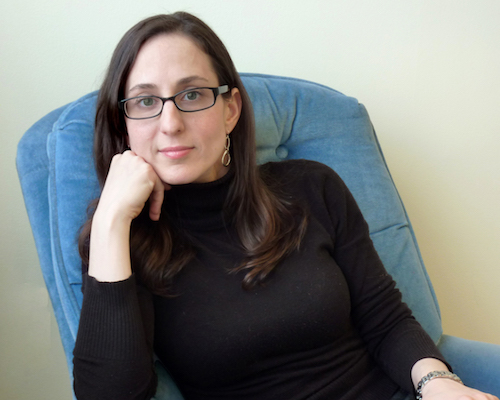Teaching Excellence at Yale
Taking advantage of classroom opportunities to discuss contentious issues benefits everyone’s learning.
Whether or not one plans for controversial topics to become part of the classroom, they appear – often in unexpected ways and places. Taking the time to educate oneself about strategies for managing such discussions creates the potential for robust student learning opportunities. Hedy Kober, Assistant Professor of Psychiatry and Psychology at the Yale School of Medicine, and Associate Professor (Adjunct) at the Yale Law School, strongly advocates such preparation (pictured below). “Our duty [as professors] is to be prepared to deal with controversial and complicated topics,” she states. “Not talking is not an option.”

Since Kober’s research and teaching includes themes such as understanding people’s cravings, and substance use disorders and addictions, she has had practice dealing with difficult questions that come up in her classes. While there is no one best way to handle complicated issues, she suggests that professors can learn proactively about the topics they anticipate may arise. Kober also recommends that professors mention potentially difficult topics to their students in advance of their discussion in class, as well as clarifying one’s intention for engaging in the topic.
Further, she advocates checking in with oneself and one’s students throughout the process, acknowledging that such discussions are complicated; listening carefully, and taking responsibility for the arc of the conversation are also key. "We all make mistakes," she says. "If an instructor feels like they did not handle a class discussion well when a topic came up, he or she should feel free to express that uncertainty to the class. Authentic expressions of doubt or regret can build trust with the class."
Kober also highly recommends taking implicit bias training. "Educating myself about contentious issues is my responsibility and my job," she says. "Doing so makes me a better human, and a better professor."
A resource exploring strategies for developing skills in facilitating difficult conversations:
The University of Alaska - Anchorage and Alaska Pacific University offer the comprehensive resource, Start Talking: A Handbook for Difficult Dialogues in Higher Education (2008). This book documents classroom strategies created by and for university professors and students from a spectrum of disciplines. It is arranged by theme (for example, “Establishing Discussion Rules” and “Safety and Risk”) and is designed to be used in small segments, rather than as a cover-to-cover read. Read this handbook online via the Difficult Dialogues website.
Share with us or a colleague:
View or download a PDF version below. Send us your feedback and suggestions. To opt-out/opt-in to this newsletter, please visit Yale’s messaging service website and follow the on-screen instructions (see instructions in the sidebar above).
